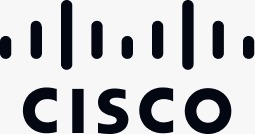
CCNP Service Provider (SPCOR)
- Course Fee
- ₹30000
- Duration
- 120 hrs.
- Level
- intermediate
This course is designed for anyone seeking CCNP Service Provider - Cisco Service Provider Core Technologies (SPCOR) certification and gives in-depth knowledge to design, deploy, configure, manage, troubleshoot, and optimize next-generation, Service Provider IP network infrastructures. Candidates will learn Service Provider technologies, services, core architecture, networking, automation, quality of services, security, and network assurance. This course will help candidates prepare for SPCOR exam, which is part of the CCNP Service Provider and Cisco Certified Specialist - Service Provider Core certifications. This course will also prepare candidates for the CCIE Service Provider certifications. This is a lab-intensive course and objectives are accomplished through hands on learning.
Enroll NowCourse Metadata
- Training Type
- ClassroomOnlineCorporate
- Batch Timings
- Early Morning
- Morning
- Afternoon
- Evening
- Fastrack
- Morning
- Afternoon
- Evening
- Sat / Sun
- Sunday Only
For the latest training schedule, please
check the Schedules.
Weekdays
Weekends
Training is available in small groups as well as on
one-to-one basis. Get in touch.
Introduction
This 120hrs (Lectures + hands-on Lab) CCNP Service Provider - Cisco Service Provider Core Technologies (SPCOR) training is designed for personnel involved in deploying, troubleshooting, managing, and optimizing next-generation, Service Provider IP network infrastructures. Candidates will learn Service Provider technologies, services, core architecture, networking, automation, quality of services, security, and network assurance. Candidates will learn core SP technologies and protocols like OSPF, IS-IS, BGP, route maps, routing policies, segment routing (SR), segment routing traffic engineering (SRTE), MPLS L2VPN, L3VPN and Cisco NSO concepts.
This course will help candidates prepare for the SPCOR exam, which is part of the CCNP Service Provider and Cisco Certified Specialist - Service Provider Core certifications. This course will also prepare candidates for the CCIE Service Provider certifications. This is a lab-intensive course and objectives are accomplished through hands on learning.
The key to a high success rate is based on the program’s objectives as follows:
- Course contents are based on Cisco Service Provider Technologies (SPCOR) course outlines.
- Dedicated Monitoring to evaluate and report candidate’s progress.
- Extensive hands-on lab exercises.
- Industry acclaimed, experienced and certified instructors.
Successsful Career
RST Forum has trained more than 700,000 students to date. Many students have gone on to successful careers in a variety of industries, while others have harnessed the entrepreneurial spirit and knowledge they acquired in RST Forum to start their own businesses and create new jobs.
Labs on cloud
RST Forum uses Cloud computing to efficiently provide “Platform As A Service” (PAAS) to its students enabling them to quickly access Technology Racks over the internet and practice lab exercise from home These Racks are populated with latest equipment’s required for practical exercise’s.
Web Forums
Our web based forum allows its users to ask, hundreds of technical experts about their technology and certification problem. RST forum is a tight knit community of working professionals that provide timely help on technical, certification and design related queries.
Enroll for this course now and boost your IT & Engineering career.
Master CCNP Service Provider (SPCOR) today.